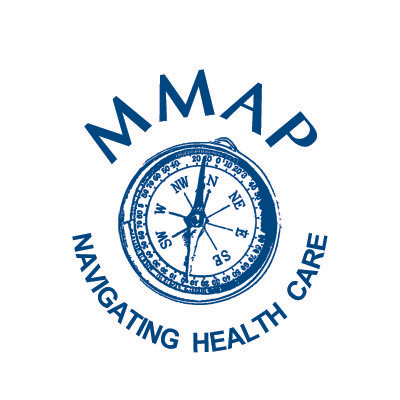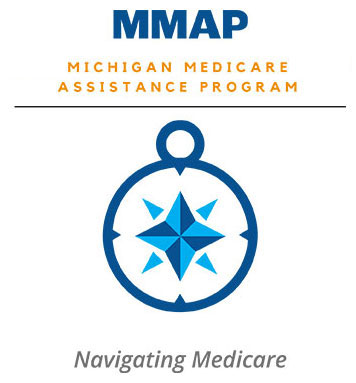WASHINGTON — Doctors are improperly billing poor people on Medicare for deductibles, co-payments and other costs from which they are supposed to be exempt, the Obama administration says.
Federal officials have warned doctors that they may be subject to penalties if they persist in these practices. They could, for example, be fined or excluded from Medicare.
The people who are being billed improperly are “qualified Medicare beneficiaries” who are also enrolled in Medicaid. They are 65 and older or disabled and have low incomes, generally less than $1,010 a month for an individual or $1,355 for a married couple.
Federal law says that such beneficiaries do not have “any legal liability to make payment” to a doctor or a hospital beyond the amounts paid by Medicare and Medicaid. The Obama administration recently told doctors that they “must accept the Medicare payment and Medicaid payment (if any) as payment in full for services rendered to a qualified Medicare beneficiary.”
Despite this requirement, a study by the Department of Health and Human Services found that improper billing still appears to be “relatively commonplace” because “some Medicare providers unlawfully bill enrollees” after receiving payments from Medicare and Medicaid. Many low-income beneficiaries are unaware of the billing restrictions or are concerned about losing access to their doctors, so they “simply pay the cost-sharing amounts,” the administration said. In other cases, it said, “unpaid bills are referred to collection agencies.”
In some cases, it said, beneficiaries “curtail their use of needed services due to concerns about their ability to pay.”
Tanya D. Kaltenbach, 45, of Evans, Ga., outside Augusta, is on Medicare because she is disabled. She said that one of her doctors, a specialist in rehabilitation and pain medicine, “has been adamant” that she pay about $25 for each visit — a total of hundreds of dollars over the last few years.
She showed the doctor’s staff a Medicare publication stating that qualified Medicare beneficiaries are not subject to such charges, but the dispute continues. “I’m afraid that I’ll be thrown out of the doctor’s practice for making a fuss about co-payments,” said Ms. Kaltenbach, who added that her income was less than $900 a month. “The office manager suggested that I was taking food out of the doctor’s mouth if I don’t pay the co-payment.”
The Obama administration has expressed its concerns in a report last summer, in a notice to health care providers in February, in a letter to insurance companies in April and again in the Federal Register two weeks ago.
Medicare, the insurance program for older Americans and disabled people, is run by the federal government. Medicaid, for low-income people of all ages, is financed jointly by the federal government and the states. Eligibility, benefits and provider payment rates vary from state to state.
About seven million low-income people receive financial help through the program for qualified Medicare beneficiaries. Under this program, state Medicaid agencies help pay Medicare premiums, deductibles, co-payments and coinsurance. But states do not have to pay doctors the full amount of such costs, and in some cases they pay nothing, leaving doctors with hundreds or thousands of dollars in unreimbursed expenses.
“Because of this gap in payment, many doctors and other health care providers try to bill the beneficiaries or refuse to provide services to them,” said Denny W. Chan, a lawyer at Justice in Aging, a nonprofit legal advocacy organization.
Many states have adopted policies that limit how much they will pay. For example, a doctor performs a service for a Medicare patient and bills Medicare for $100. Medicare pays 80 percent, or $80, and the doctor could ordinarily collect the other $20 from the patient. But if the patient is also on Medicaid, and if Medicaid’s payment rate for the service is only $70, then the state does not have to make any additional payment, and the claim is considered to be paid in full. The doctor is forbidden to bill the patient for the balance.
Medicaid is supposed to operate like a supplementary insurance policy, filling gaps in Medicare for people who could not easily afford to pay their share of the bills. But under a 1997 federal law, states have the option of making payments based on Medicaid rates rather than on Medicare rates, which saves them money. Medicaid payment rates for physician services are often well below Medicare’s — a reason that some doctors cite for refusing to participate in Medicaid or for limiting the number of Medicaid patients they will see.
The Obama administration has warned doctors that if they participate in Medicare, they “must abide by the balance-billing prohibitions,” regardless of whether they also accept Medicaid patients. “Medicare providers who violate these billing prohibitions are violating their Medicare provider agreement and may be subject to sanctions,” the administration said in a bulletin for doctors.
For their part, doctors say they do not always know that a patient is a qualified Medicare beneficiary and is therefore exempt from Medicare’s cost-sharing requirements. The government is increasing efforts to educate doctors and patients after finding widespread confusion. Federal officials have also reminded private Medicare Advantage plans that they too are bound by the billing restrictions in federal law.
While doctors cannot bill qualified Medicare beneficiaries, they can try to collect the unpaid share of a bill from the state Medicaid program. But if the doctors do not participate in Medicaid, they may have difficulty obtaining payments.
Sukrit Dass, of Lansing, Mich., said he and his wife, Monica, both 73, had received bills from an eye doctor and from physical therapists even though they were supposed to be excused from such cost-sharing as qualified Medicare beneficiaries. Mr. Dass took the bills to a counselor at Michigan’s Medicare/Medicaid Assistance Program, who got the charges waived after pointing out the prohibition in federal law.
The counselor, Linda Kusnier, said she had a similar experience with a local pharmacy that insisted on collecting 20 percent of the cost of diabetes supplies from one of her clients, a low-income beneficiary entitled to both Medicare and Medicaid. Ms. Kusnier said she had told the drugstore, “That’s not right, it’s against the law.” And the charges were eventually reversed.
David A. Runkle, 51, of Fort Lauderdale, who has AIDS and is an advocate for people with the disease, said, “Balance billing is rampant here in Florida.” Mr. Runkle is a qualified Medicare beneficiary, but said he had received dozens of bills from doctors and hospitals. “I send them back a copy of the law,” he said, “but they keep sending me more bills because they do not understand the law.”

